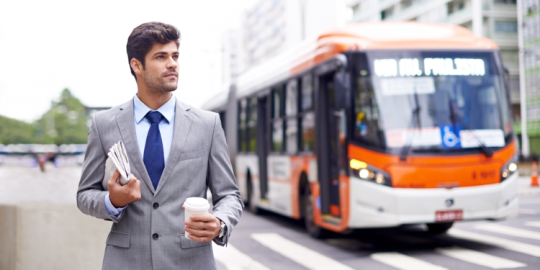There are many reasons: Christmas for some, New Year's celebrations or simply the fact that many of your colleagues and friends, local or not, might be heading to their families place and you as an expat might find yourself alone. We heard from a psychologist, who's also an expat, what are the most challenges for expats and what could help to overcome.
Isabel Pastrana, a psychologist with a speciality in gender, is an expat from Mexico living in Madrid. She points out that the end of the year can be a dark period for some expats because they have difficulties meeting their needs when they are alone during these festive periods. She, as an expat herself, faced challenges as well. “I think that the hardest difficulty I faced in my experience in Madrid was the separation from family and friends.” In Mexico, there is a custom of living with a great attachment to the family, according to her a “muégano” type of family (the muégano is a typical Mexican sweet, very sweet and united by honey, is deeply rooted. “Everything is done as a family and also, what happens to a family member is firstly shared and assisted in this environment,” she comments.
Fears
For the psychologist Isabel, it is normal to have thoughts of all kinds always coming and going in mind, and that is something that also happens to her. “What if my mother gets sick, and I can't be there to help her? What if there is an important event and I can't be present? In the context of Covid-19, if someone gets infected, you don't know if that person can get through it or not; what if someone needs me for this kind of situation? I think there are many thoughts and fears that constantly cross us.”
Anxiety
The loss of a support network was cited as a top stressor for 42.8% of the expats survey done by Dr. Mitesh Patel, the medical director of U.S. health care company Aetna. “As our clinical experts have provided support to our members, they have found that the absence of the friend and family network compounds stress and anxiety suffered by expatriates on foreign soil,” the study described.
For Pastrana, anxiety is the issue of being uncertain about the present and the future. Since expats, especially those living alone, have to make important decisions about work and studies, they can sometimes find it hard to decide what they want to do and where they want to go. “That happens to me, I'm not sure about my work, but suddenly I realized I have left my stability to live a dream. Obviously that by experiencing this city, this idea gradually disappears. However, it is a constant fear that I have of not having made the best decision.”
Lack of money
Another critical challenge at the end of the year highlighted by the psychologist is the financial part. “It is not easy to make ends meet; it is a heroic act that expats are doing, especially that many come from countries where, as in Mexico for example, the currency is very devalued compared to Euros”. For her, it is essential that expats have a monthly financial plan to prevent them from being stressed and anxious at the end of the year. “Living life in a new city, where you want to try its many tastes and different culture can be very expensive.” Despite this, she thinks expats have to find a balance between enjoying their time outside, getting to know new places and restaurants, as well as consider cooking and chilling out with friends at home.
Family and friends
“I'm very fortunate to have a very united and understanding family which from the beginning of my plan to study in Madrid gave me all the support that can be given”, says Isabel Pastrana, student of a Master's degree in Gender Studies. On the other hand, she believes the social relations built in the home country should continue, as well as other special friendships to be built in the new country. According to the psychologist, it is important to have support and affection in decisions in person as well as virtual contact by video calls or texting with those you love back home or somewhere else. “In that, technology is a blessing. Thanks to it, we can stay close to our support networks. I also believe that in my case, I have met very valuable people and from whom I learn every day. I consider that my just support network here are my friends, with who I share everything I do and discover here", she shared.
In this sense and with regard to plans for Christmas and New Year's, most expats would spend it with family or friends, cooking, singing, and playing board games, perhaps. As an expat, though, it will be very different. For Isabel, it will be her first time away from home, but she points out the importance of experiencing at the most. “At a certain point, that makes me nostalgic. However, I am excited about that day to come. I enjoy walking through the streets with my boyfriend, seeing the lights with many lights and colours, seeing the giant trees in various parts of the city, and taking photos. I know these photos will be invaluable to my boyfriend and me in a few years. It will be our experience. Also, I put a Christmas tree, I thought that would brighten my apartment, and I feel nice to see it.”
Mental health support
One issue that Pastrana considers essential within the expat experience is psychotherapeutic support. For her, the experience as an expat moves important feelings and thoughts that must be shared in a suitable and safe space such as the therapeutic space. “It is a chance to share that sudden feeling that you miss your family, facing all the feelings that this entails.” She comments that many expats don't know who to talk to, as if sharing with family could cause concern and alarm them. Therefore, she believes the clinical space is ideal for venting these emotions. “With this, I am not saying that it is not good to tell people that you miss: that you miss them, but that the psychotherapeutic space helps you to face those adversities that may suddenly arise day by day. I think it also helps to make better decisions, more aware and more appropriate according to the context.”
















